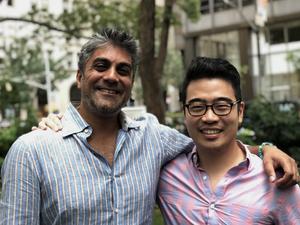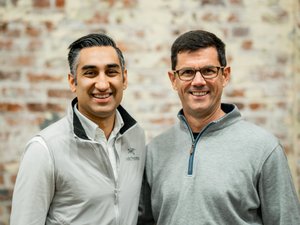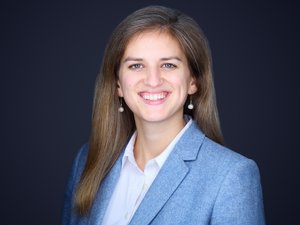
Big thinkers and bright minds are molding the future of civilization through solving massively complex problems in innovative ways. Elon Musk is reshaping the automotive and power industries through electric cars and solar roof panels, respectively. Bill Gates is answering socioeconomic issues through providing support to global health and development areas as well as to the US education system.
To bring these big ideas to fruition, they require an enormous amount of resources from a support, workforce, and financial perspective. Much of these areas have a large and loud support section – green technology, health initiatives, etc., but most lack financial dedication. So how do you pay for this future with advanced technology?
Jason Aspiotis, founder and CEO of Finsophy, is changing this equation – “if half of the United States truly wants to make an impact on the sustainability of our existence into the future, we need to deploy this massive amount of annual capital towards those missions.”
Aspiotis’ philosophy behind Finsophy is to incorporate longer-term, mission driving thinking into banks’ investment criteria – specifically, in the personal deposit accounts area.
With consumers having less trust in financial institutions since the crash in 2009, there’s a significant amount of cash sitting in standard bank accounts – there are over ten trillion dollars in deposits in the US right now.
Instead of letting the money sit stagnant in accounts, banks typically look to make loans and investments with the money to generate returns. Today this money is being invested – “in derivatives markets and [to] not very transparent finical products and exchanges,” Aspiotis mentions.
“So we thought, ‘why not create a banking platform that connects people to what they care about through their bank account.’” In this case, consumers can say that they prefer their money go to supporting green technology, community development, education, or even space. “So banks [would] have a way to attract more customers based on actually making socially or environmentally responsible loans and investments on the back-end.”
The business model at this early phase is Finsophy will bring customers to partner banks and will charge for a portion of interest from those new assets.
The first vertical the Finsophy team is exploring is space as their team is familiar with this industry – Aspiotis, himself, began his career as an astrophysicist then worked in applied physics and hard science. He adds, “My co-founder and most of my teammates have a natural affinity towards space – and the inception of Finsophy was essentially a digital ‘credit union’ for people [who] want to put their money towards supporting the space vertical through their bank accounts.”
Let’s use clean energy as an example.
First, it’s foolish to think a bank will make loans to clean energy related investments only because a portion of their customer base cares about alternative energy exploration and advancement. But if all things are equal in the analysis an investment’s return, the bank could look to its customers’ values, see that they are interested in the clean energy, and would decide to make the related loan.
It’s a culture shift, so major investment will not happen overnight. “Whether it’s one, fifteen, or fifty percent of the assets created are mission [related] – it’s still better than zero”, Aspiotis admits.
By using Finsophy, customers will feel a sense of impact, while banks will benefit through lower customer acquisition costs, as Finsophy will bring customers to partner banks, increased customer retention, and a better understanding of their customers’ interests.
Finsophy was part of the most recent QCFintech class, so they relocated from San Francisco to Charlotte mainly for the network of partners and mentors that are part of the QCFintech program.
“Coming here was great timing because it exposed us to the reality of how banks work, how they think, [and] how they make decisions on what to invest in.”
The team has received a lot of feedback from the banking community here in Charlotte, but nothing was able to kill the Finsophy idea. In fact, their hypothesis has been validated – “banks do care about attracting millennials and banks would like to do good things, but by design it’s hard.”
Aspiotis sees a lot of value in Charlotte, so much so that he’s moving to Charlotte to cultivate the banking relationships made during the QCFintech program.
His guidance to early entrepreneurs is to start by trying to kill your idea. Talk to as many people as possible to get feedback and explore the viability of the idea, and after those conversations, if the idea is still standing, you can confidently move forward.
He then advises having three main characteristics. First, passionately believe in the idea – this translates to perseverance when times are tough. Second, have a stable financial foundation and a clear path to survive financially for a few years to bring your idea to life. And third, be flexible with your idea and open to feedback. If you listen, the market will tell you where the customer’s demand is.
You can learn more about Finsophy, here - https://www.finsophy.com.








